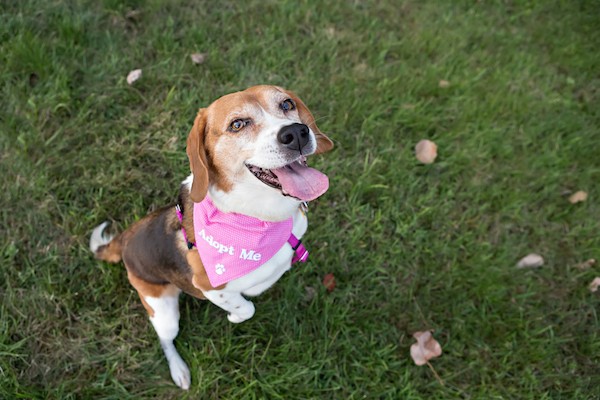“I think I need to return my rescue dog.”
These are words that most people never want to say, hear, or even discuss. I’m not talking about those who return a dog who is more work than expected or because they’re moving. I’m talking about the people who put in the time, do the training, and have many sleepless nights before uttering those words.
I’m here to tell those people it’s okay to say those words.

Border Terrier by Shutterstock.
Sometimes, a dog is not a good fit for a person or family. Sometimes, a person or family is not a good fit for a dog. Even with a shelter/rescue staff’s evaluation of a dog’s personality, the truth is you may not know who the dog is for at least a couple of weeks (sometimes more!).
That’s not to say you will have a Dr. Jekyll/Mr. Hyde situation, but sometimes a dog isn’t reactive in a shelter because he’s so nervous, and you end up with a dog you can’t manage because he lunges at everyone on walks. Or you have a successful meet-and-greet between an adoptable dog and your own, only to realize later that they were distracted by the shelter setting and really don’t like each other. Or, one of the worse-case scenarios, you adopt a dog who turns out not to like kids at all.
Or maybe the dog has a medical condition no one was aware of, and you can’t financially take that on. In all of these situations, is keeping the newly adopted dog fair to anyone involved, including him?
I’m sure some of you will say, “It’s better than being stuck in a shelter or euthanized,” and you’re right. So what am I suggesting?
If you got the dog from a rescue group, it’s probably in the contract that you must take her back to them if you no longer can provide care. When you do, they’ll have more information and can find a better match and more fully prepare the next adopter.

Adoptable dog by Shutterstock.
If you got the dog from a shelter, especially a high-kill shelter, I don’t recommend taking him back there. Here are a few other options:
- Use your social network. Post about your dog on Facebook and ask friends to share with potential new families.
- Talk to your veterinary clinic. The staff may know of someone who is looking for a pet or can help you advertise for a new home.
- Talk to your dog trainer. If it’s a behavior-related issue you aren’t suited to handle (aggression, separation anxiety, etc.), perhaps your trainer can recommend someone. I’ve done it for a client, and now the dog is much happier with his new family.
- Take the dog to a shelter with a higher adoption rate, or even better, a no-kill shelter. You can also ask staff to call you if the dog gets put on the euthanasia list.
- Relinquish her to a rescue with a reputation for finding good homes (do your homework, as not all rescues are equal). If you can foster the dog while the rescue looks for potential adopters, that might make it easier for them to accept the dog.
If you find someone on your own who is interested in your dog, don’t take the decision lightly (even if you are on a tight timeframe). Consider an adoption fee, no matter how small, to attract only serious adopters. Be sure to disclose all of the information about the dog (especially his or her preferences or dislikes), and be prepared to ask many questions. There are some great examples of what you might ask at Pit Bull Rescue Central. The article “Questions rescue groups may ask you before you adopt a dog” is another great resource.
I know this is a hard decision for you, but finding a more suitable home for the dog will give you space for a better fit for everyone.
The post Are You Thinking About Returning a Rescue Dog? appeared first on Dogster.
No comments:
Post a Comment